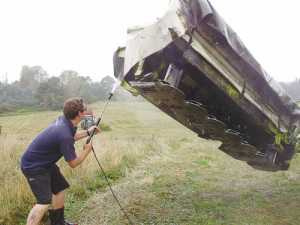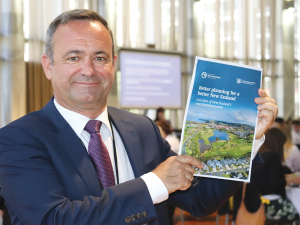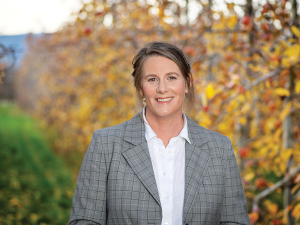Velvetleaf gets specific mention by a steering group representing nine agencies.
Waikato Regional Council’s biosecurity pest plants team leader Darion Embling says machinery and vehicles pose high risk.
“Machinery and vehicle movements aren’t the only culprits responsible for the spread of pests, but they do pose a high risk,” said Embling.
“Last year we conclusively linked velvetleaf infestations on some properties to the movement of unclean machinery, which is why good machine hygiene practices are important.
“Ag industry biosecurity starts at the farm gate. Cleaning machinery is a big part of that, to remove plant or soil contamination that might be harbouring pests, weeds or seeds, before entering the next property.”
The steering group comprises reps from Waikato Regional Council, Federated Farmers Waikato, DairyNZ, Rural Agricultural Contractors Association, PGG Wrightson, Foundation for Arable Research, Pioneer Seeds, AgResearch and Farmlands.
Velvetleaf, among the cropping industry’s worst pests, has been found growing on farms in the Matamata-Piako, Te Awamutu and north Waikato. It has spread to properties via infested fodder beet seeds from overseas, distribution of infested maize crops and maize silage, and unclean machinery.
Embling says 37 properties in the region are infested by velvetleaf, ranging from a handful of plants to hundreds -- even thousands.
“And we know the seeds can remain dormant for up to 60 years.
“We’re working with farm managers, landowners and rural contractors to manage the risks, and have long term plans to stop this nasty weed from spreading to other properties.”
Suspected sightings of velvetleaf should be reported to Waikato Regional Council’s biosecurity pest plants team on 0800 246 732 (0800 BIOSEC).
This allows council staff to assess the property and then work with landowners and farm managers on a plan if the presence of velvetleaf is confirmed.
Advice on machine hygiene is available at waikatoregion.govt.nz/biosecurity
















